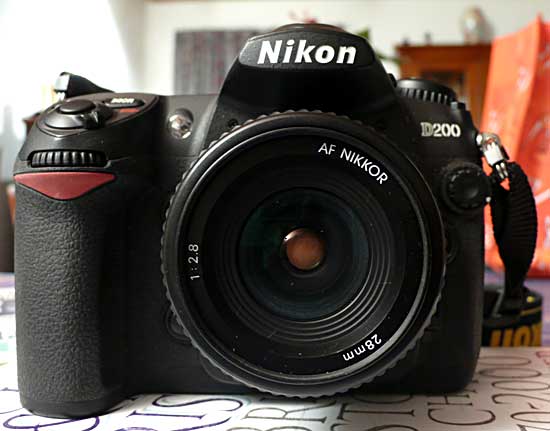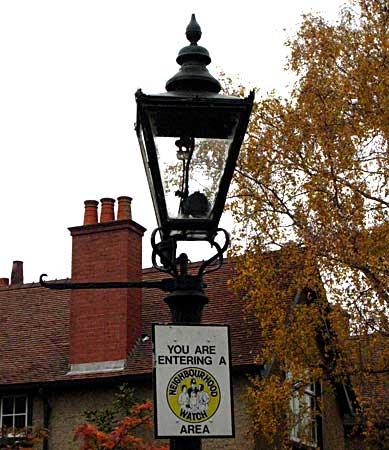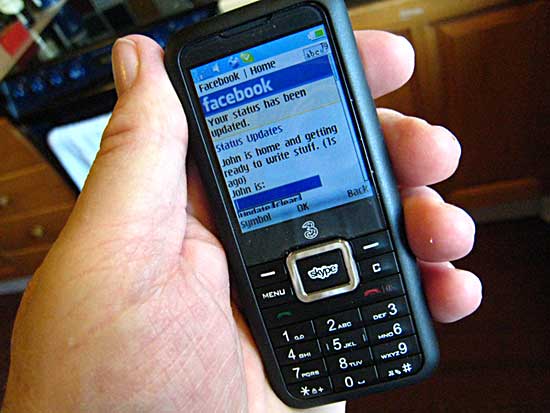Remember the Antonioni film? Well, driving through town this morning I came on this perfectly ordinary house.

Now, here’s a blow-up of that upstairs window.

Interesting, ne c’est pas?

Remember the Antonioni film? Well, driving through town this morning I came on this perfectly ordinary house.

Now, here’s a blow-up of that upstairs window.

Interesting, ne c’est pas?
From a Telegraph report
Tony Blair has come under fire in the Chinese media for charging nearly £200,000 for a single speech – and not a good one at that.
The former prime minister spoke to businessmen and government officials in the industrial city of Dongguan, two hours’ north of Hong Kong, on Tuesday evening.
Local media estimates of his fee ranged from US$330,000 to US$500,000 (£160,000 to £240,000).
Although the real estate firm which hired him for a “VIP banquet” refused to confirm the sum, the local tax office admitted he had paid just under £80,000 in income tax and £6,500 for a three per cent business tax, which would work out to a total fee of about just under £200,000.
What made matters worse for newspaper commentators was that Mr Blair failed to say anything interesting.
One said he had trotted out the same platitudes about the importance of collaboration between government and business, and of the environment, as you would hear from the officials in his audience.
“Frankly, we are very familiar with all this – it’s just like listening to any county or city official’s reports,” Deng Qingbo wrote in the China Youth Daily…
The piece goes on to say that a recent US tour netted £300,000 for the disgraced former PM.
Puzzled about the subprime market crisis? Try this explanation by John Bird and John Fortune.
Excerpt:
Fortune: How does that [the subprime market] work?
John Bird: Well, imagine if you can an unemployed black man sitting on a crumbling porch somewhere in Alabama in a string vest and a chap comes along and says “would you like to buy this house before it falls down? and “why don’t you let me lend you the money?”
JF: And is this chap who says this, is he a banker?
JB: Oh no, no, he’s a mortgage salesman. His income depends entirely on the number of mortgages that he can arrange.
JF: So, his judgement to arrange mortgages is completely objective?
JB: Completely objective, yes.
JF: And what happens next?
JB: Well, this debt, this mortgage, is taken — bought — by a bank and packaged together on Wall Street with a lot of other similar debts…
JF: Without going into much detail about what is actually…
JB: Without going in to any detail. No, it’s far too boring. And so this is put into a package of debt and then it’s moved onto Wall Street and … it’s extraordinary what happens then… somehow this package of dodgy debts stops being a package of dodgy debts and starts being what we call a Structured Investment Vehicle…
Bird and Fortune are comic genuises. No other words for it. I’d missed the South Bank Show on which they appeared, so thanks to Hap for reminding me.

I hate zoom lenses, partly because of the optical compromises implicit in zooming, and partly because they introduce an unnecessary variable in composition. But most DSLRs seem to come with zoom lenses only. I’ve been using an old 50mm lens on my D200 and it’s worked very well but because of the fudge factor (1.5) needed to allow for the difference between the size of the sensor compared with 35mm film, it winds up being the equivalent of a focal length of 75mm. So the other day, courtesy of ffordes, I found a good used 28mm f2.8 Nikkor (which is the equivalent of about 42mm) and it’s just perfect.
Great BBC column by Bill Thompson on the first Mac trojan.
The first serious threat to Mac users has been observed “in the wild”.
It’s a Trojan Horse, a piece of code that pretends to do one thing but actually compromises your computer.
This one spreads through online video sites, taking advantage of the fact that there are many different ways to display video, each requiring slightly different software to encode and decode moving images.
That puts my son right in the middle of the vulnerable population because he likes to watch video clips via sites like YouTube and Flixster.
Although Quicktime, the Apple media player that comes bundles with every Mac, makes a good shot of dealing with most common formats, if it can’t figure out what to do with a particular file type it can go online to find the right “codec”.
The Trojan sits behind an online video and when you try to play it you get a message from Quicktime telling you to get a new codec, and if you follow the link you’ll be sent to a site that hosts the malicious software.
Click “ok” and enter your systems adminstrator’s password and it will be installed on your computer with full system access after which you are, to use the jargon, “pwned”, or scuppered.
And you don’t even get to see the video you were after.
At the moment the fake codec is being spread via porn sites, but it will quickly spread to more mainstream sites, and that’s when it will get dangerous and could affect a lot of Mac users who believe that they don’t need to worry about system security…
Richard Earney emails:
It’s unfortunate, because this Trojan is an actual attempt by Ukrainian criminals to hijack Macs, but it’s not exploiting any sort of security hole in any version of Mac OS X. To get hit by it, you must (a) be the sort of moron who downloads “video codecs” from porno sites; (b) mount the disk image and launch the installer; and (c) grant the installer administrator privileges to install whatever it wants, wherever it wants on your system. No system can prevent that.
If anything, the fact that you have to manually install the software and supply your administrator password is a sign that Mac OS X security works.
Hmmm…. I’ve just looked at Safari Preferences, which has a check-box for “Open ‘safe’ files after downloading” which some users might leave checked in their innocence.
Later: Charles Arthur emailed to point out that ” it’s not strictly the first; but it does seem to be the first *commercial* one, where the professional malware writers have gotten into the game”.

Stansted airport.

… a Neighbourhood Watch Area AND the18th century. That’s a working gaslight on a suburban Cambridge street.

My Skype phone arrived today, and it’s a very interesting gadget indeed. It’s got a lovely implementation of Skype and does Skype-to-Skype calls smoothly — and free. Also the Skype IM client works smoothly and efficiently. It’s also a perfectly good ‘ordinary’ phone (and has quite a decent 2MP camera) with Bluetooth and a micro SD card. What with this and the iPhone and the revelations about Google phone plans, the mobile phone business is about to become a LOT more interesting than it has been up to now.
Haven’t read all the small print yet, so haven’t been able to check what happens when you want to make Skype-to-Skype calls in another country. There has to be a downside to this somewhere. But it’s a neat and innovative package just for UK use.
Oh — I almost forgot — it’s also got a nice app which makes it easy to post Facebook status updates. See photograph.
Useful list from TechCrunch.
As a result of some — as yet unexplained glitch — yesterday’s Observer column didn’t make the leap from print to Web. If you’re interested here’s a pdf.
Who said there isn’t life after death? Hard on the heels of Radiohead’s ‘pay what you like’ experiment — in which fans were able to decide how much (or how little) they wanted to pay for the group’s latest album — comes news that Cliff Richard is also testing new online business models. He’s asking his fans to determine the price of his forthcoming meisterwerk, ‘Love, the Album’. The maximum anyone will be charged is £7.99 (the price of an album on the iTunes store) but the the final price will be determined by how popular the album is — as measured by the volume of advance orders.
Ingenious, eh? It just shows that there’s still life in these old codgers. Sir Cliff says he had no choice but to embrace new technology. ‘Who’d have thought I’d get a buzz from creative marketing?’ he told the Daily Telegraph. ‘As artists we face a stark choice. We either keep one step ahead of the technology which is changing our industry so radically – or we throw up our hands and quit. Personally I’m not for quitting.’
Right on…
Correction: The column was published on the Web edition, but in a different location. Phew!